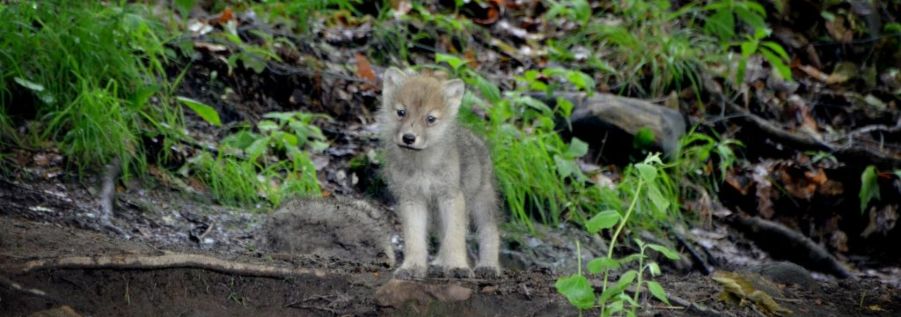Wildlife rehabilitation is vital to the preservation and protection of ecosystems because it helps injured, abandoned, or relocated animals. Funding for these efforts can come from many sources, one of which is gambling revenue. In both Canada and Ireland, part of the money generated through gambling is allocated to various social causes, including environmental protection and wildlife conservation.
While many might associate gambling with entertainment or leisure, its broader impact on society is often overlooked. In Ireland, for example, a portion of the funds generated through activities such as lotteries and some of the most community-conscious platforms, including the top 10 Irish online casinos, plays an unexpected yet vital role in wildlife conservation. This contribution helps sustain rehabilitation centers, enabling them to continue their essential work of caring for injured animals and promoting biodiversity.

The Connection Between Gambling Revenue and Conservation
Gambling, whether through lotteries, online casinos, or land-based venues, generates significant revenue for governments. In both Canada and Ireland, a portion of this revenue is directed to social and community initiatives, which may include wildlife rehabilitation programs.
While gambling might seem like an unlikely source of funding for environmental causes, this revenue stream provides critical financial support for organizations dedicated to animal rescue and rehabilitation. These funds help wildlife centers with operational costs, medical supplies, and educational outreach.
How Gambling Revenue is Collected and Allocated
Canada: Ontario Wildlife Rescue

Ontario is home to numerous wildlife rehabilitation centers, many of which rely on external funding to operate. One example is the Ontario Wildlife Rescue, a network of rehabilitators that works to save injured and orphaned animals. With support from OLG’s community funding, Ontario Wildlife Rescue has been able to expand its facilities and rescue efforts. The additional financial support allows the center to care for more animals and educate the public about the importance of wildlife conservation.
Another success story comes from British Columbia, where lottery revenue helps fund the British Columbia Society for the Prevention of Cruelty to Animals (BC SPCA). Their Wild Animal Rehabilitation Centre (Wild ARC) cares for thousands of animals each year, many of which are returned to the wild after treatment.
Ireland: Community Wildlife Programs

In Ireland, several wildlife projects receive funding from gambling taxes. These programs often focus on the rehabilitation of birds, marine life, and small mammals. The Irish Wildlife Trust (IWT), for instance, benefits from government support partially funded by gambling revenue. Through its various initiatives, IWT works on the conservation of native species and their habitats.
In addition, local rehabilitation centers, like WRI (Wildlife Rehabilitation Ireland), rely on donations and government funding to care for injured animals. WRI provides specialized care for creatures like hedgehogs, foxes, and birds of prey. With support from gambling revenue, these centers can cover essential operational costs, including veterinary services, housing, and educational activities.
How Gambling Revenue Distribution Works
Mechanisms in Canada
In Canada, the process of distributing gambling revenue is straightforward but varies between provinces. For instance, in Ontario, the OLG collects profits from various gambling activities, and the provincial government decides how much to allocate to social causes, including wildlife rehabilitation.
Provinces like British Columbia and Alberta also have similar systems where a percentage of gambling revenue is directed towards community groups, many of which focus on environmental conservation and wildlife protection. Non-profits, rehabilitation centers, and wildlife organizations can apply for grants, and successful applicants receive financial support for their projects.
Mechanisms in Ireland
Ireland’s system for distributing gambling revenue operates through government agencies that oversee environmental and community initiatives. The Irish government allocates a percentage of its gambling taxes to wildlife conservation efforts, and organizations like WRI and IWT benefit from this support.
Non-profit organizations in Ireland can apply for funding through government grants or partnerships. The funds can be used for rehabilitating wildlife, educational programs, and other activities that benefit local ecosystems.
Impact of Gambling Revenue on Wildlife Conservation
Revenue from gambling has a big influence on wildlife rehabilitation. In both Canada and Ireland, these funds help wildlife centers continue their essential work. Without this support, many organizations would struggle to provide the necessary care for injured animals or run educational programs for the public. Benefits to wildlife include:
- Medical Care: Gambling revenue helps cover the costs of medical treatment for injured animals, ensuring they receive proper care before being released back into the wild.
- Habitat Restoration: Some funds go towards restoring habitats that have been damaged by human activities, providing animals with safe environments to return to.
- Education and Awareness: Wildlife centers use these funds to educate the public on how to coexist with wildlife and reduce human-wildlife conflicts.
Maximizing the Positive Impact of Gambling Revenue on Wildlife Conservation
To make the most of gambling revenue for wildlife rehabilitation, several strategies can be applied. Ensuring consistent, long-term funding is key, as it provides stability for wildlife organizations. Building stronger partnerships between gambling regulators and environmental groups can lead to more effective fund allocation. Transparency in how the funds are distributed also fosters public trust. Additionally, public awareness campaigns can highlight the importance of conservation and encourage community involvement, amplifying the positive effects of these funds on wildlife protection.
